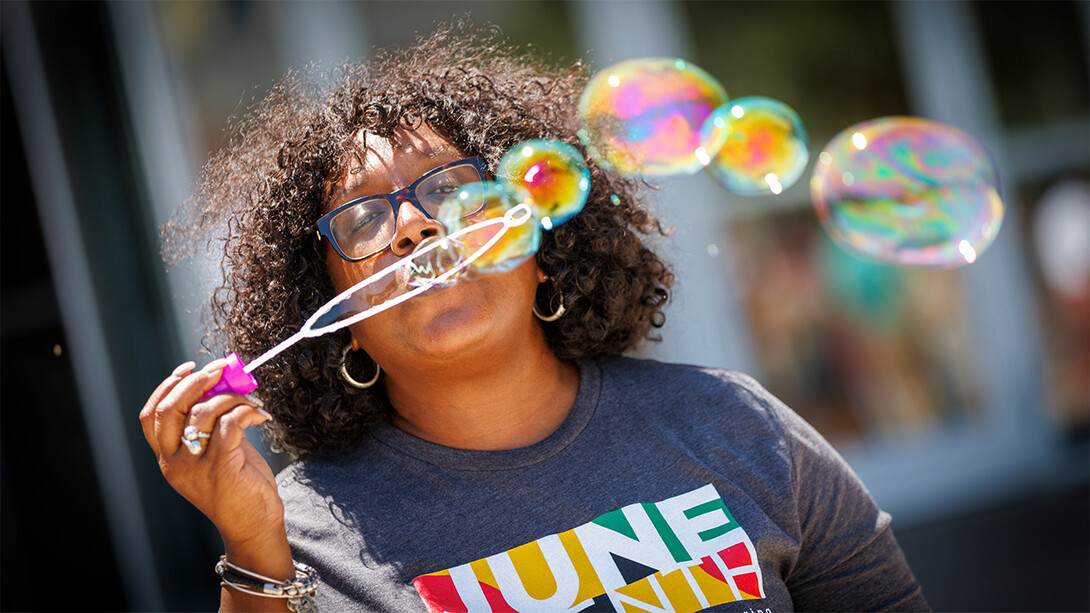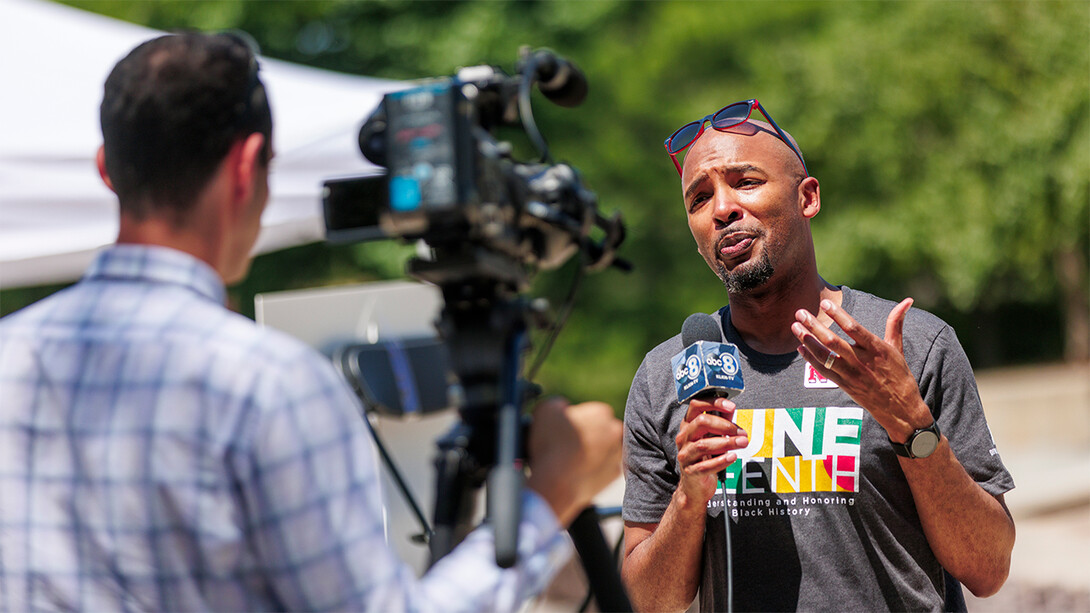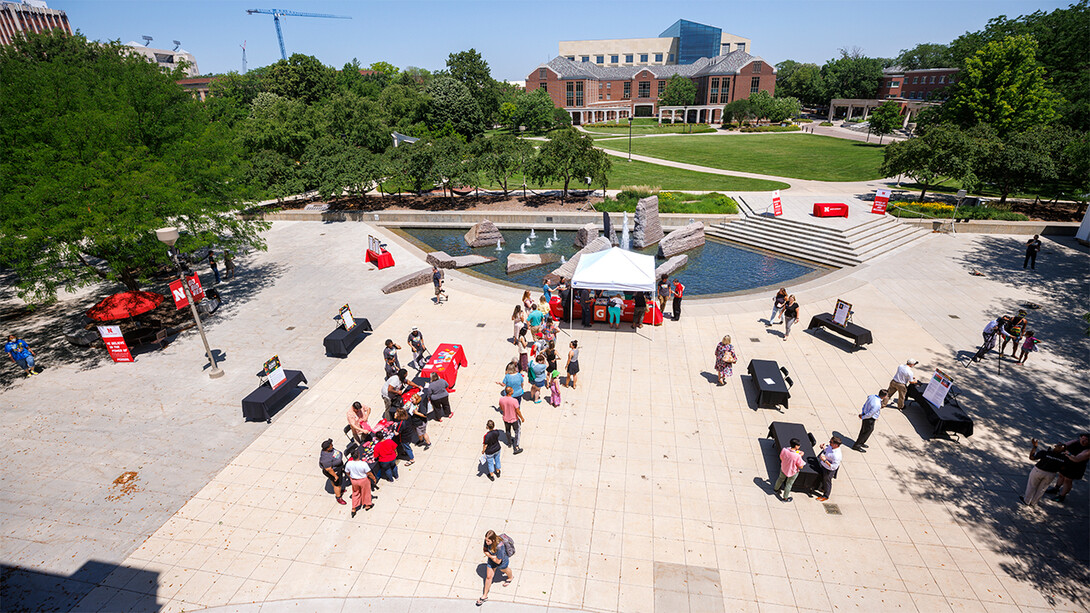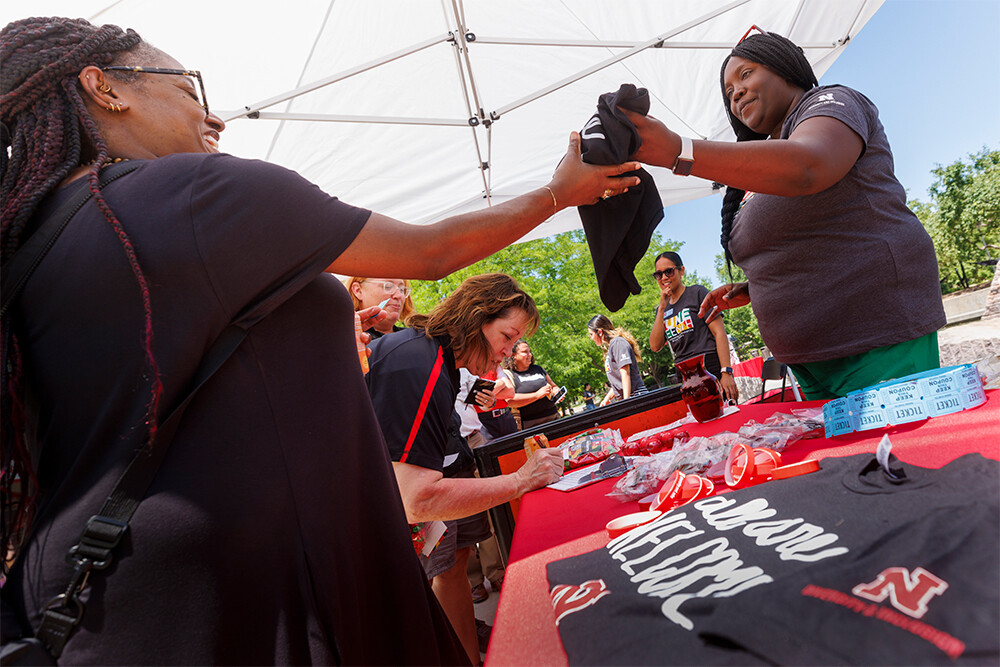
Backdropped by Broyhill Fountain, with bubbles and the notes of “River Deep-Mountain High” bobbing on the 93-degree air, the University of Nebraska–Lincoln hosted its inaugural Juneteenth celebration June 20 at the Nebraska Union Plaza.
Coordinated by the Office of Diversity and Inclusion, the event drew students, staff, faculty and community members to observe what is considered the oldest African American holiday — one formally recognized by the federal government in 2021.
The holiday commemorates the true emancipation of the many African Americans who, though designated free by the Emancipation Proclamation on Jan. 1, 1863, continued to be enslaved through the end of the Civil War in 1865. The celebration specifically marks the arrival of federal forces in Galveston, Texas, and the freeing of the last enslaved African Americans in the state on June 19.
Held under a cloudless afternoon sky, Nebraska U’s event offered a multitude of information on the history and significance of Juneteenth, including Sheila Jackson Lee’s introduction of a bill to recognize the date with a federal holiday.

“This really represents progress for our university,” said Marco Barker, vice chancellor for diversity and inclusion. “We are often careful not to measure progress in terms of programs, but I think this is more than that. It recognizes that, as an institution, there are still opportunities to do more. This, for me, is us doing more.
“There are always opportunities for us to think about how history informs us today. I hope that people leave with a sense of seeing that Black history is a part of American history, and it’s a rich part of American history.”
Carol Boehler, who coordinates the McNair Scholars Program and acknowledged knowing little about Juneteenth until a couple of years ago, said she was grateful for the chance to learn more. She was accompanied by Lisa Rohde, associate director of teaching and research development with the Office of Graduate Studies.
“I think it’s an important holiday to be celebrating and acknowledging, especially for our students of color,” Rohde said.
If education and awareness were the orders of the day, engagement and camaraderie followed close behind. Volunteers fanned out across the plaza to operate booths that dispensed drinks, T-shirts, bracelets and other swag. A game of bags was underway within 30 minutes. A truck on the plaza’s east end offered a fruit-flavored respite from the heat in the form of shaved ice.

That university-approved vendor dovetailed with another aim of the event: recruiting Black-owned businesses to partner with the University of Nebraska system. Doug Carlson, chief procurement officer, was on hand to talk with entrepreneurs interested in earning some of the roughly $700 million in contracts awarded annually to suppliers of university goods and services.
“There are so many great minority-owned businesses here,” said Nkenge Friday, assistant vice chancellor for strategic initiatives. “We want to be able to bring them to the university and explore ways that we can be hopefully longstanding partners. I think this is a great jumping-off point for that.”

Both Friday and Barker emphasized that while the nature of the holiday naturally and necessarily asks Americans to gaze on the past, it can also serve as a fulcrum by which to act on the present.
“We are trying to do our part so that people see how they can be part of the Juneteenth celebration — that it’s not only for particular communities,” Barker said, “but really meant to be a broader effort to think about history, yes, but also empower communities today.”







